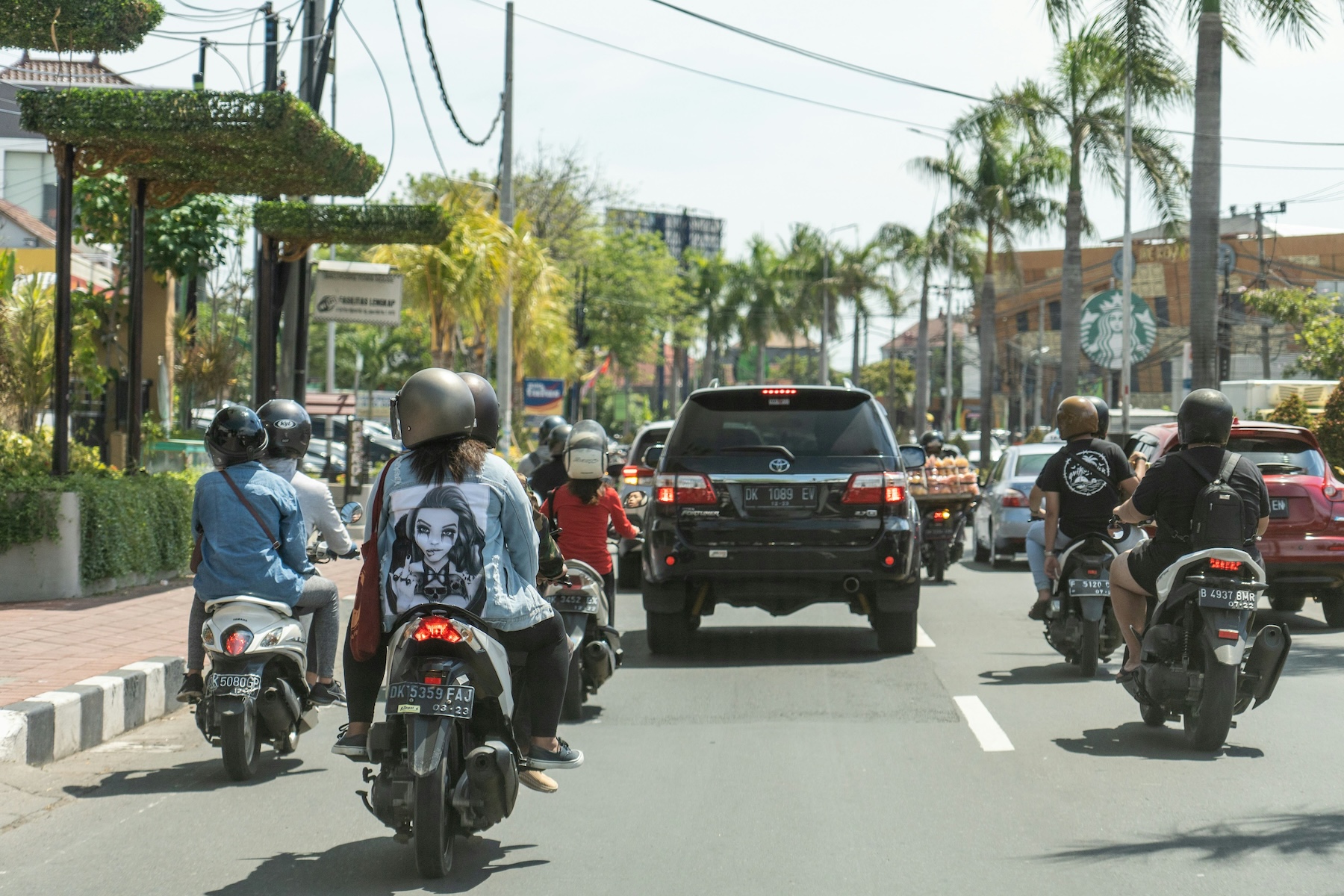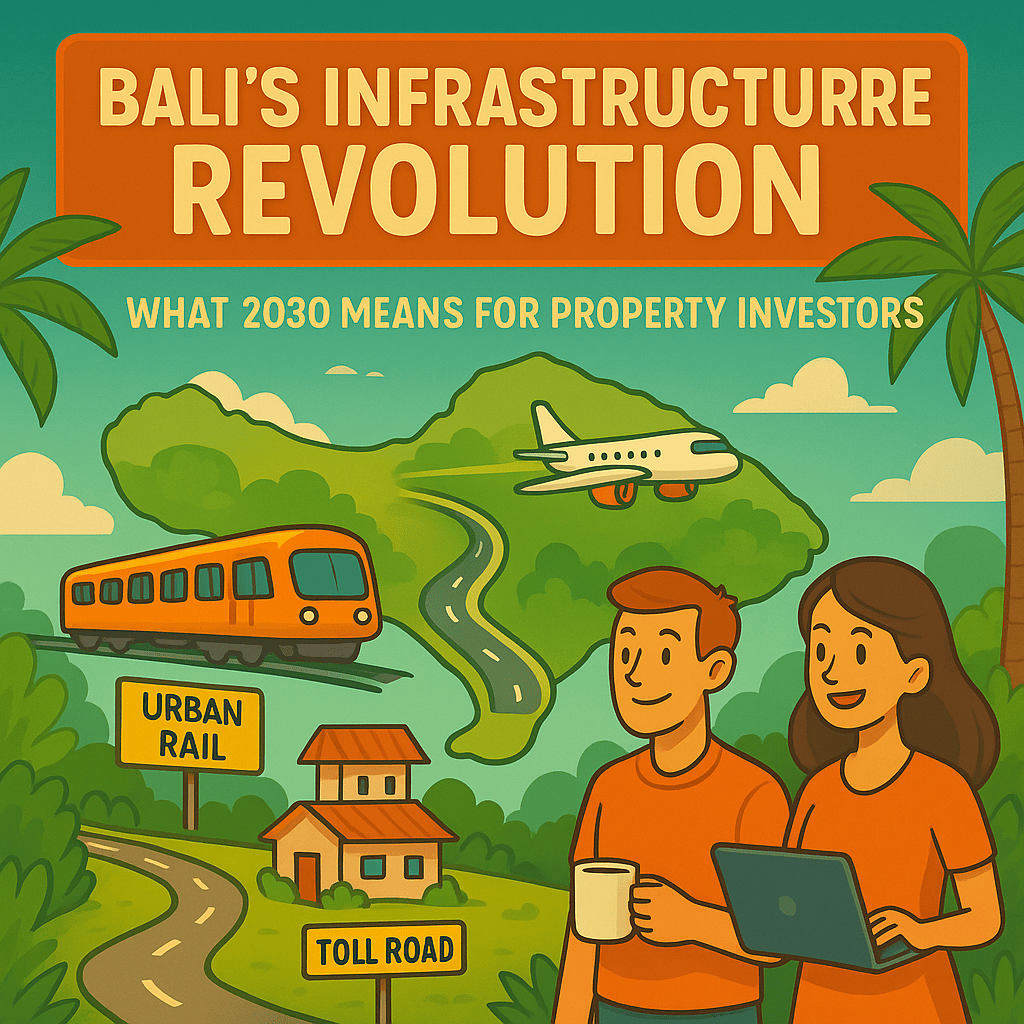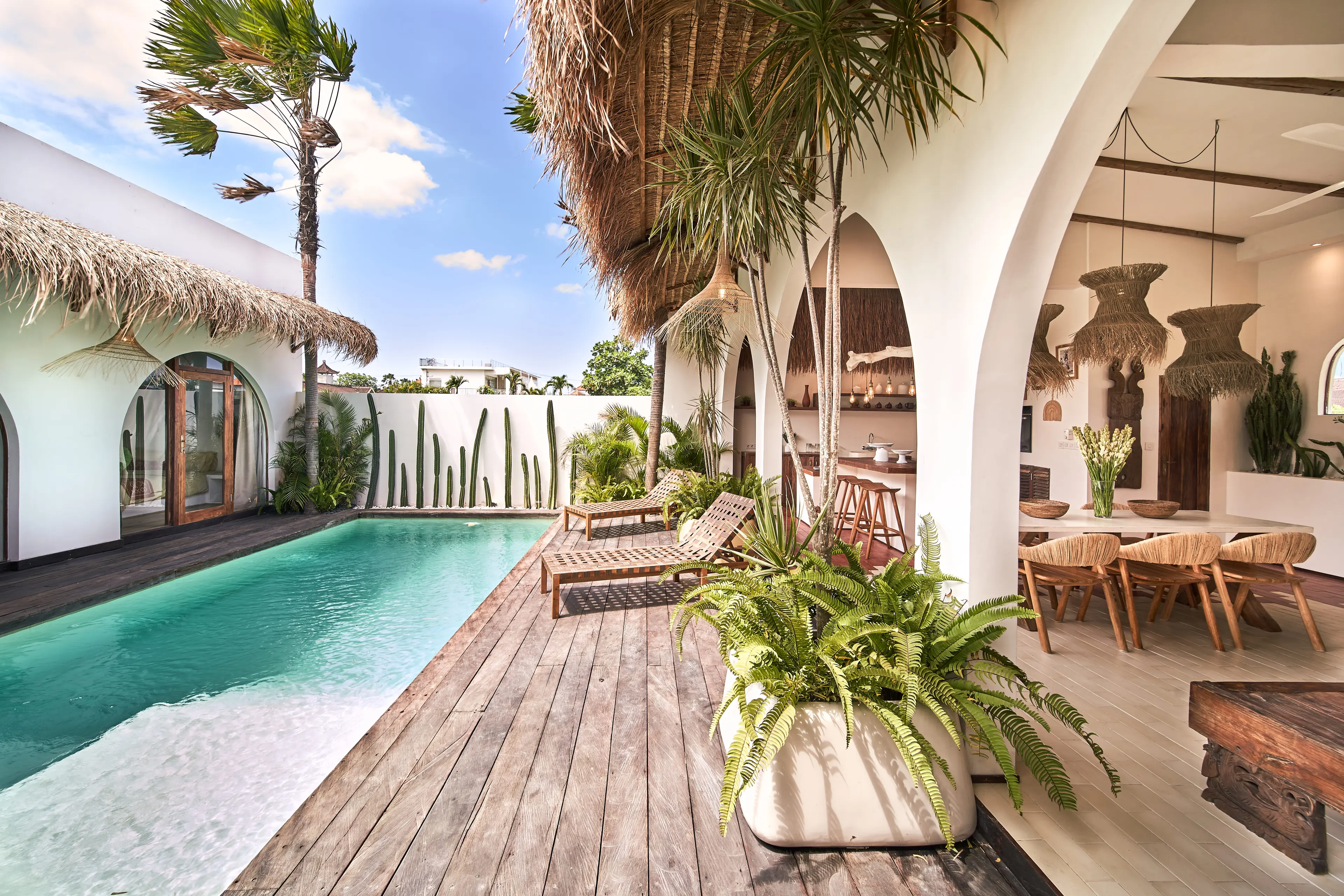Bali represents far more than a tropical destination. It has evolved into a lifestyle choice, a cultural sanctuary, and increasingly, a strategic location for remote professionals, retirees, and discerning real estate investors. Whether you are planning your inaugural visit or exploring opportunities to invest in Bali property, understanding the island's distinctive rhythm will significantly enhance your experience.
At Tipi Estate, we recognize that finding your ideal property extends beyond square footage and amenities. It begins with understanding and embracing the Bali way of life. Here are ten essential insights to inform your journey.
Understanding Bali's Entry Requirements
Before confirming your travel arrangements, verify your visa eligibility through official channels. Indonesia's visa framework offers several pathways depending on your purpose and duration of stay.
The Visa on Arrival suits short-term visitors seeking stays of up to 30 days, with extension possibilities. For those considering extended exploration or remote work arrangements, Social and Cultural Visas provide longer-term options. Investors and business professionals should investigate the specific visa categories designed for property acquisition and commercial activities.
We recommend consulting Indonesia's Directorate General of Immigration directly, as requirements vary by nationality and are subject to periodic updates.
Bali's Spiritual Foundation and Cultural Identity
Bali stands apart from the Indonesian archipelago through its predominantly Hindu population, which comprises over 80 percent of the island's residents. This distinctive spiritual identity manifests in daily rituals, ornate temple architecture, and the ubiquitous canang sari offerings placed throughout homes, businesses, and streets.
The island's cultural fabric shapes not only its aesthetic appeal but also its community dynamics and property considerations. Understanding and respecting these traditions proves essential, particularly when visiting sacred sites or considering residential areas near temple complexes.
This spiritual dimension contributes significantly to Bali's investment appeal, creating a unique cultural authenticity that distinguishes it from other tropical destinations.
Navigating Bali's Transportation Landscape
Transportation infrastructure in Bali reflects both its developing economy and its adaptation to modern convenience. Motorbikes dominate local traffic, offering flexibility and efficiency for navigating the island's varied terrain.
Ride-hailing platforms, including Gojek and Grab, have established strong presence in urban centers, providing reliable alternatives to traditional taxis. While public bus services exist through the Trans Metro Dewata system, coverage remains limited compared to metropolitan standards.
For property investors, transportation accessibility represents a critical consideration. Proximity to major arterial roads, established communities, and emerging infrastructure projects can significantly influence both lifestyle quality and investment performance.
Financial Transactions and Banking Practices
Bali's commercial sector has embraced digital payment infrastructure, with most established restaurants, cafes, and retail outlets accepting international cards. However, cash transactions remain prevalent in traditional markets, local warungs, and when visiting temples or rural areas.
We recommend maintaining a supply of Indonesian Rupiah for daily transactions, particularly when exploring areas beyond primary tourist zones. ATMs are widely available in developed regions, though withdrawal limits and fees vary by institution.
Seasonal Considerations for Your Visit
Bali's tropical climate divides into two distinct seasons, each offering unique advantages. The dry season, extending from May through September, provides optimal conditions for beach activities, outdoor exploration, and property viewings under clear skies.
The rainy season, spanning October through April, transforms the landscape into lush tropical verdancy. While afternoon showers are common, they typically prove brief and create opportunities for reduced crowds and favorable accommodation rates.
For prospective property buyers, experiencing both seasons offers valuable insight into how individual properties manage tropical weather conditions, drainage systems, and natural ventilation.
Appropriate Attire for Bali's Climate and Culture
Bali's warm, humid climate calls for breathable natural fabrics. Lightweight linen and cotton garments provide comfort while respecting local sensibilities. Footwear ranges from quality sandals to comfortable walking shoes, depending on your planned activities.
Temple visits and certain cultural sites require modest dress. A sarong and scarf serve dual purposes, providing both respect for sacred spaces and protection from intense midday sun. Many temples provide these at entrances, though carrying your own demonstrates cultural awareness.
For property viewings or business meetings, smart casual attire strikes the appropriate balance between professionalism and tropical practicality.

Managing Traffic Patterns and Timing
Traffic congestion represents one of Bali's growing challenges, particularly in established tourist corridors. Morning rush periods between 6:00 and 8:00 AM see local commuters, while evening hours from 5:00 to 7:00 PM experience similar density.
Tourist activity creates additional congestion, particularly between 8:00 and 11:00 AM and again from 4:00 to 7:00 PM. Areas such as Canggu and Seminyak face regular traffic pressure, which should inform location decisions for both vacation stays and property investments.
Emerging areas like Pererenan and Uluwatu offer tranquil alternatives while maintaining reasonable access to commercial and cultural centers. This balance between peaceful residence and convenient connectivity increasingly drives premium property values.
Maintaining Health and Wellness
Digestive adjustment, commonly referenced as "Bali belly," affects many first-time visitors but remains largely preventable through sensible precautions. Bottled water should be your standard for drinking and teeth brushing. Freshly prepared, thoroughly cooked food from reputable establishments minimizes risk.
Probiotic supplements, begun several days before arrival, can support digestive adaptation. Should symptoms develop, rest and hydration typically suffice, though persistent cases warrant medical attention.
Bali's healthcare infrastructure has evolved significantly, with international-standard clinics and hospitals available in major areas.
Bathroom Facilities and Local Customs
Bathroom standards vary across Bali's diverse accommodation and commercial options. While modern facilities predominate in tourist areas and premium properties, carrying personal tissues or toilet paper proves prudent.
Traditional Balinese bathrooms often feature water-spray cleaning systems rather than paper products. This practice reflects both cultural preference and environmental considerations. Understanding these variations helps avoid discomfort during property viewings or cultural excursions.
Waste disposal follows specific protocols. Most plumbing systems cannot accommodate foreign materials, with disposal bins provided for all paper products.
Family-Friendly Opportunities Throughout Bali
Bali has established itself as an exceptional family destination, offering diverse activities that engage multiple generations. Sanur's calm beaches provide safe swimming for children, while Canggu's family-oriented cafes feature dedicated play areas and child-friendly menus.
Cultural attractions, including traditional dance performances, rice terrace walks, and wildlife sanctuaries, create educational experiences alongside entertainment. The island's international school network supports families considering longer-term residence or property investment.
Many premium villas incorporate family-focused design elements, including private pools with shallow areas, secure gardens, and layouts that balance adult sophistication with child safety.
From Visitor to Resident: Understanding Bali's Investment Appeal
First-time visitors frequently discover that Bali exceeds their expectations, not merely as a destination but as a potential home. The island's combination of natural beauty, cultural depth, and practical lifestyle advantages has driven increasing interest in property ownership and long-term investment.
Understanding these essential travel considerations provides foundation for more strategic decisions about location preferences, community selection, and property types. The knowledge you gain as a visitor directly informs the wisdom of your investment choices.
Begin Your Bali Journey with Expert Guidance
At Tipi Estate, our role extends beyond property transactions. We serve as your bridge between visiting Bali and truly understanding its investment landscape, lifestyle opportunities, and community dynamics.
Whether you are exploring semi-permanent residence, vacation property investment, or seeking comprehensive insights into Bali's real estate market, our team combines professional expertise with authentic local knowledge. We invite you to begin this conversation, ensuring your Bali experience reflects both your aspirations and sound strategic planning.
Contact Tipi Estate today to discuss how Bali's lifestyle and investment opportunities align with your goals.












